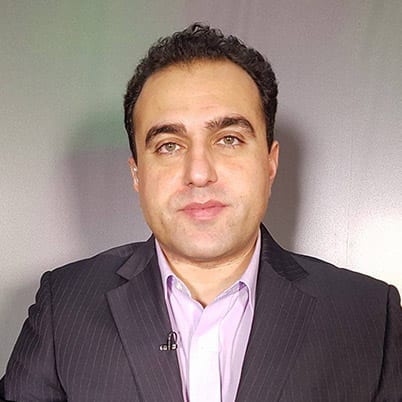The disappearance and probable murder of Saudi journalist Jamal Khashoggi is proving to be the most significant public relations challenge for the House of Saud in living memory. The gravity of the crime – both in its conception and execution – makes it unlikely that the Saudis will be able to avoid a substantial diplomatic and political cost.
At a minimum, this grisly affair has destroyed the reputation and long-term political prospects of the impetuous Crown Prince Mohammad Bin Salman (MBS). Khashoggi’s likely murder makes it all but impossible for the Crown Prince’s apologists in the West – notably New York Times columnist Thomas Friedman – to continue to misrepresent MBS as an enlightened reformer.
More broadly, the House of Saud will pay a reputational cost, much to the discomfort of their powerful Western allies, which like Britain’s Jeremy Hunt now have to make a serious effort at justifying the special relationship with the Saudis.
One beneficiary of the Khashoggi affair is Iran which stands to gain both morally and strategically from the Saudis’ murderous action in Istanbul. Khashoggi’s probable murder not only makes it more difficult for the United States to continue to present Saudi Arabia as morally superior to Iran but more important it creates opportunities for Iran to contribute to MBS’s political demise.
An independent voice
Since his disappearance more than two weeks ago countless reports have emerged about Jamal Khashoggi’s past, affiliation, quality of journalism and his character. Most of these reports have been respectful (if not entirely accurate), but some have been downright spiteful and consistent with Saudi and UAE propaganda and character assassination.
Those who knew Jamal can attest to his independent mind, depth of knowledge and above all a deeply sincere and generous spirit. The horrible fate that befell him is above all a testament to just how seriously the Saudis considered him as a potential threat.
Read: Saudi may admit to killing of Khashoggi after denying any knowledge for two weeks
Jamal was rare amongst Saudi writers and intellectuals (excepting activists and journalists from the Shia minority in the Eastern province) in so far as he could write and talk in a relatively balanced manner on Iranian-related topics.
But Jamal was not soft on Iran and some of his stances, for instance on the Syrian conflict and Iran’s broader involvement in Arab affairs, were close to official Saudi positions. Khashoggi even justified the execution of prominent Saudi Shia cleric, Sheikh Nimr Baqir al-Nimr, by equating him with al-Qaeda terrorists.
Khashoggi’s critical stance on Iran hasn’t stopped the Iranian media – both official and popular – from adopting him as a martyr and to predictably use his disappearance to embellish their criticism of all things related to Saudi Arabia.
#JamalKhashoggi
One online news portal close to the Iranian security establishment has even gone as far as to identify five Saudi dissidents who are at risk of meeting the same fate as Khashoggi.
Rhetoric and propaganda aside, one of the best pieces on the Khashoggi case has been produced by the US-based Iranian scholar Hamid Dabashi. A professor of Iranian Studies and Comparative Literature at Columbia University, Dabashi insightfully identifies and critiques American Orientalism as the intellectual force behind the thinking of Friedman and other MBS apologists.
The diplomatic dimension
At an official level, Iran has stayed quiet on the Khashoggi affair with the Iranian foreign ministry adopting a “wait-and-see” approach on the issue. This is understandable as Iranian diplomats try to assess the case’s overall diplomatic impact before they stake out recognisable positions.
But Iranian analysts close to the foreign policy community in Tehran are already advising the country’s decision-makers to use MBS’s imminent downfall as a means to seize an unassailable advantage over Riyadh on regional security and influence-related issues.
One former high-ranking Iranian diplomat even argues that Iran should sit on the side-lines as the US and Turkey fight over the spoils of the Khashoggi case (regarding eliciting immediate concessions from the Saudis) and instead focus on more substantial longer-term gains, notably on drawing concessions from the Saudis on Yemen.
Read: The Khashoggi case leads to calls for the ‘Vaticanisation’ of Makkah and Madinah
Realistically, and in practical terms, Iran will be focussed on two inter-related processes linked to the developing Khashoggi case. It goes without saying that Iran is keen to see Saudi Arabia pay the maximum reputational cost possible for the abduction and likely murder of Khashoggi. While sanctions are unlikely – on account of the Saudis’ huge clout in Washington and London – nevertheless a hardening of Western attitudes on Saudi Arabia will be entirely consistent with Iranian national interests.
Second, the Islamic Republic will be closely monitoring internal tensions within the Saudi royal family with a view to detecting and exploiting decisive moves against MBS and his inner circle. Since 2015 the powerful but inexperienced crown prince has single-handedly guided the Kingdom toward a confrontation with Iran, a scenario which the Iranians – and the majority of the Saudi leadership – want to avoid.
A succession of belligerent policies, ranging from the brutal prosecution of the war on Yemen and the abduction of the Lebanese Prime Minister in late 2017 to the execution of Sheikh al-Nimr in January 2016, has introduced unprecedented levels of tension and animosity to the already fraught Iranian-Saudi rivalry.
The ouster of Mohammad bin Salman and the restoration of traditional Saudi diplomacy and tradecraft is considered as the desired outcome by Tehran.
The views expressed in this article belong to the author and do not necessarily reflect the editorial policy of Middle East Monitor.

![Saudi journalist Jamal Khashoggi at the 25th anniversary of the Oslo Accords, MEMO hosted a conference in London, UK on 29 September 2018 [Jehan Alfarra/Middle East Monitor]](https://i0.wp.com/www.middleeastmonitor.com/wp-content/uploads/2018/10/Untitled-1.jpg?fit=920%2C574&ssl=1)

![Freedom of Expression in Saudi Arabia - Cartoon [ChappatteTwitter]](https://i0.wp.com/www.middleeastmonitor.com/wp-content/uploads/2018/10/Twitter-1.png?resize=920%2C606&ssl=1)






